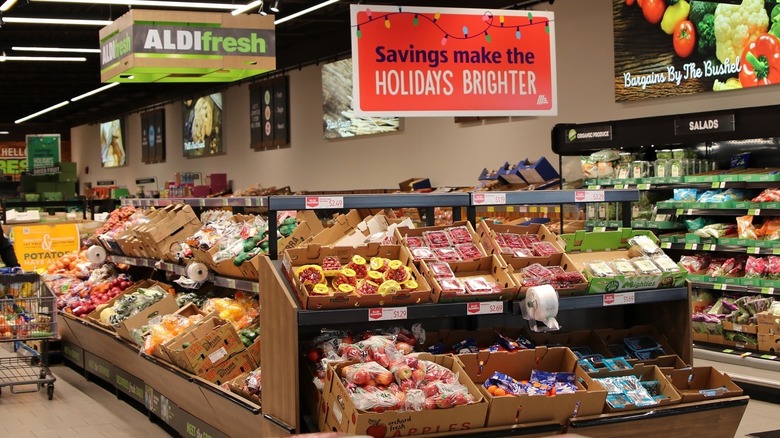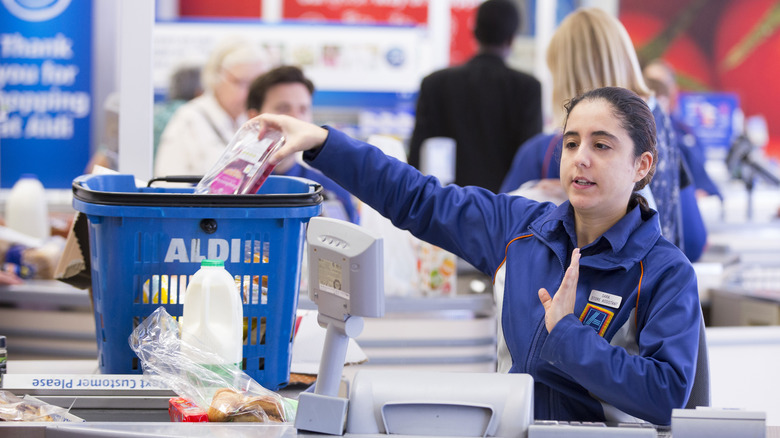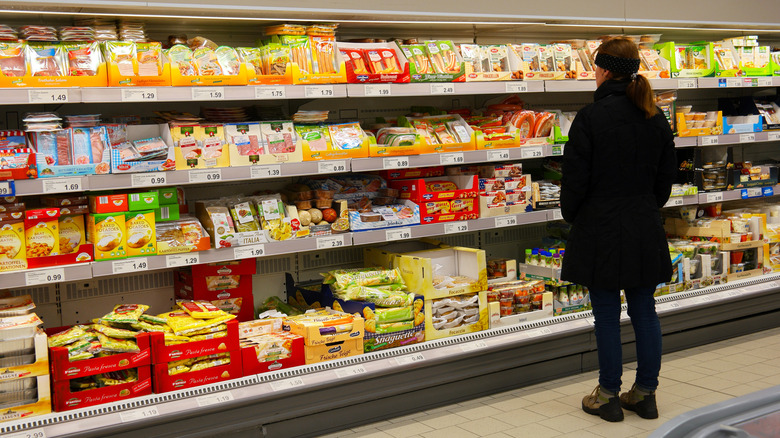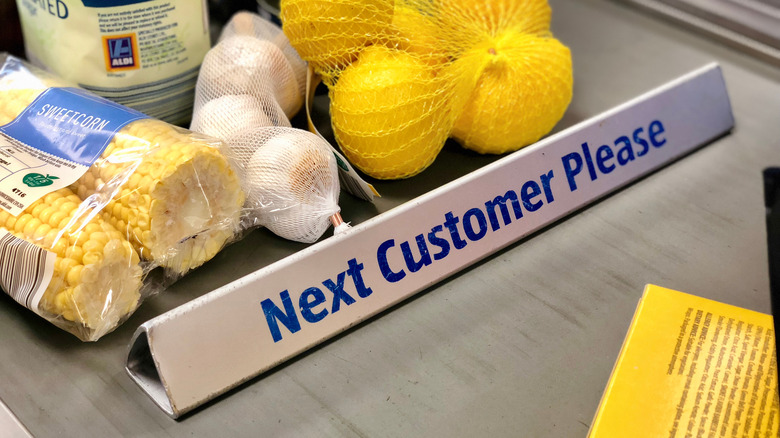Why Aldi Shoppers Say You Should Always Check Your Receipt
Caveat emptor. Aldi shoppers should take the exhortation of "let the buyer beware" seriously, especially when it comes to their receipts. You might be paying more than you're supposed to. Earlier today, one victim of ill fate brought this message to the Aldi subreddit. They had gone to Aldi because they saw that certain candies and the wood wick candles were around 80% off. No Aldi aficionado could bear to pass over such a saving. Yet, after paying and gathering themselves in the car, they saw that the extreme discounts were not noted on the receipt. But they then noticed the line was too long for $5 savings. So, they went home.
"But this is actually the second time this happened so just a heads up..." they warned the other Redditors. "If you're on a budget and you buy clearance items, make sure you get the advertised price." A self-professed store associate responded, saying that their store had a computer issue earlier that day that prevented the discount from being processed. Other self-identified employees chimed in with similar cases. Either way, the associate said it's best to check your receipt anyway: "It can be an issue for a cashier who is trying to be quick, which is unique to Aldi... We value accuracy, but mistakes do happen." So, there's nothing nefarious, but buyers should beware of paying more for Aldi's wares.
This isn't the first time this issue was raised by Aldi shoppers
Mistakes happen. And when they happen at Aldi, it can cost people money. In January 2021, 7News.com.au covered a similar story, which the site also brought up in June 2020. Namely, that members of the Aldi Mums Facebook group had noticed they were being double-charged for items. These aren't always simple cases of being charged for two containers of milk instead of one. "I was once charged for 33 punnets of strawberries instead of three. Didn't notice until I got home!" one reasonably shocked member exclaimed. That's 11 times the correct price after all.
In response to those cases, an Aldi spokesperson rolled out the solution in a statement: "In the unlikely circumstance that a customer is overcharged, we encourage them to return to their local store to receive a refund." You just need to make sure to bring the original receipt. Similarly, the Aldi associate in the subreddit commented, "We are happy to rectify them and it's easier to do while you're still on the property with receipt in hand." Keep an eye out then, lest you spend more money than you need to or more time getting the refund.
Aldi has made worse mistakes than that
Tracing the downwards trajectory of Aldi's apparent cash-register mistakes, we move from charging for certain items twice to charging for whole orders twice. In August of 2017, the BBC reported that certain Aldi stores in the UK's Midlands charged customers who made purchases on the fourth and seventh a second time on the twenty-fourth.
Apparently, this was due to a regional processing error, and a spokesman claimed that everyone had been reimbursed within 24 hours.
However, as The Sun reported, the second charge caused some customers to suffer more than a mere inconvenience. One Tweet the piece quoted reads "Thanks for taking an unauthorised duplicate payment out of my bank just before the Bank Holiday and payday. Now I'm overdrawn #broke." In the case of overdraft fees, the Aldi spokesperson said that the customer would have to sort the issue with the bank themselves.
While no eagle-eyed scanning of your receipt can protect you from Aldi's algorithms charging you a second time weeks after the fact, it shows how serious the bugs that cause these problems can be.
Sometimes, government agencies get involved in grocery investigations
The previous examples present a situation where the customer should be on guard against slipups. However, a good business-public relationship cannot thrive when the public has to hold the company under constant scrutiny.
In New York City, for example, the Department of Consumer Affairs is tasked with ensuring customers are charged the proper price. "It shouldn't be a consumer's job to have to bird-dog checkout," Jonathan Mintz, New York City's consumer affairs commissioner, was quoted saying by ABC in 2010. At the time, more than 500 of a 1000-store investigation had failed the department's inspection. These inspections usually involve selecting random groceries and seeing what the cashier charges.
The more prevalent issue seems to not be double-scanning, but pricing items by weight. In a 2015 press release, New York City's Department of Consumer Affairs announced that Whole Foods overcharged for 80 different types of pre-packaged food, 89% of which deviated in weight by a larger than allowed amount. The worst offense was the claim that certain types of packages always weighed the same when such consistency would prove practicably impossible, e.g. vegetables.
The buyer should definitely beware, but as the department's investigations shows, after a certain point, an individual's wariness may not be able to comprehend the whole picture.



